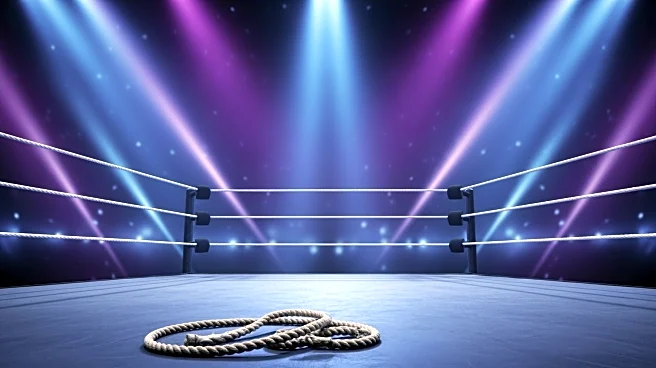What's Happening?
ABC has announced Taylor Frankie Paul as the new lead for The Bachelorette, marking a significant departure from tradition as she is the first non-Bachelor alumna to take on the role. The announcement was made on Alex Cooper's 'Call Her Daddy' podcast
on September 10, 2025, which is an unusual move for the network, typically known for revealing such news through more traditional channels. This decision is seen as an attempt to reach a broader audience, particularly younger viewers who are more engaged with social media platforms and podcasts. The Bachelorette is set to debut in 2026, altering the franchise's usual rollout schedule. This change comes alongside the premiere of 'The Secret Lives of Mormon Wives' season 3 on November 13, 2025, creating opportunities for cross-promotion.
Why It's Important?
The decision to announce Taylor Frankie Paul as The Bachelorette through a podcast reflects a strategic shift by ABC to engage with younger audiences who consume content differently than traditional TV viewers. This move could potentially broaden the franchise's appeal and increase its relevance in a rapidly changing media landscape. By tapping into Paul's existing social media following, ABC aims to leverage her influence to attract new viewers while maintaining interest among long-time fans. This approach could redefine how reality TV shows are marketed and consumed, emphasizing the importance of social media and influencer culture in shaping viewer engagement.
What's Next?
As The Bachelorette prepares to debut in 2026, ABC will likely continue to explore nontraditional channels for promoting the show, potentially leading to more influencer-led casting decisions in the future. The network may also focus on creating viral moments and cross-promotions with other reality TV properties to maximize audience reach. Fans can expect more surprises and shifts in the franchise's traditional format, which could lead to debates about the balance between innovation and maintaining the show's legacy. The success of this strategy will depend on how well it resonates with both new and existing viewers.
Beyond the Headlines
This development highlights the growing influence of social media and podcasts in shaping public perception and engagement with entertainment content. It raises questions about the future of traditional media channels and their ability to compete with digital platforms. The shift also underscores the importance of adapting to changing consumer behaviors and preferences, which could have broader implications for the television industry as a whole.















